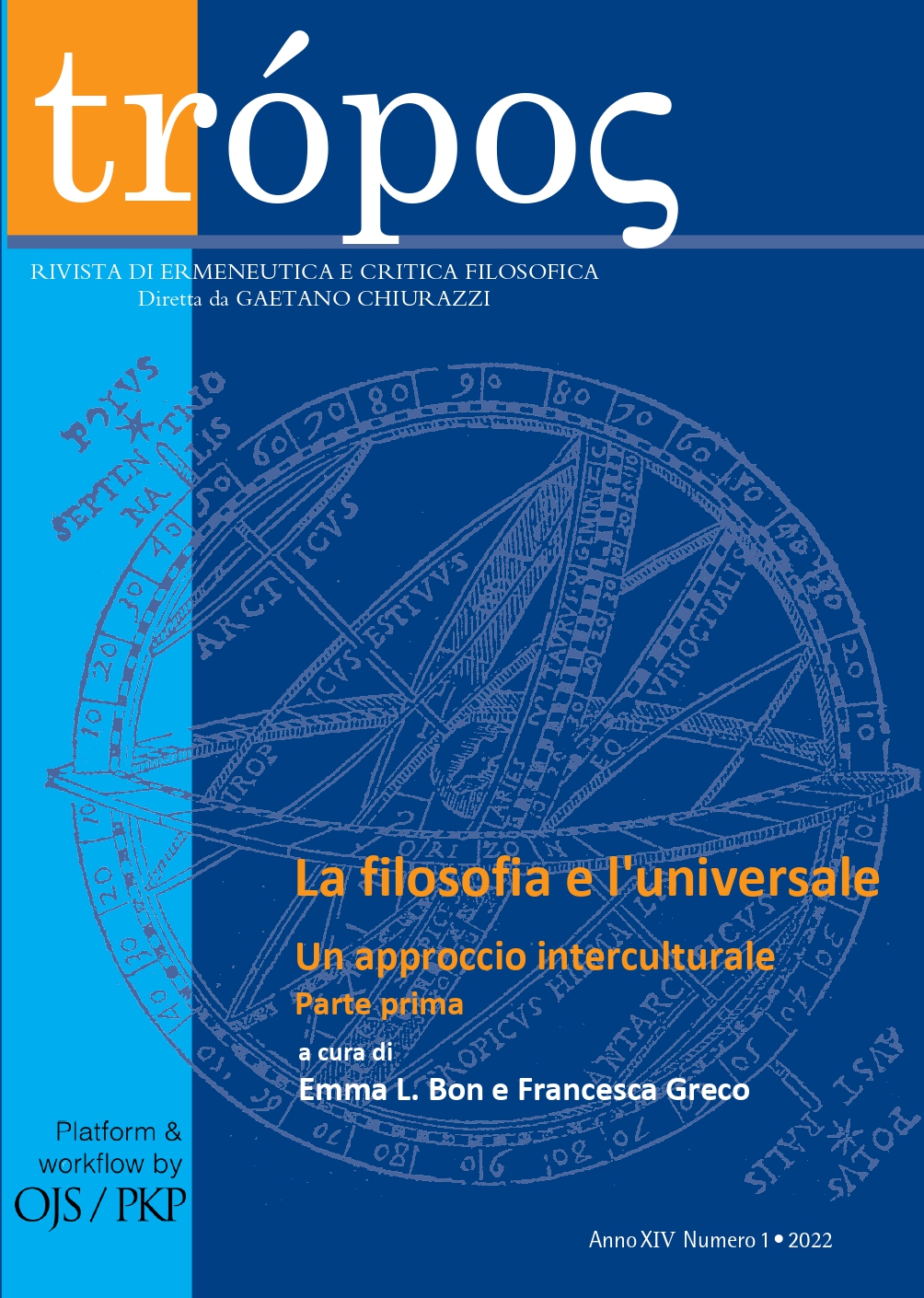L'universale e il "luogo" della filosofia
DOI:
https://doi.org/10.13135/2036-542X/8153Abstract
The notion of “universal” has always been at the center of philosophical reflection, even before its explicit formulation starting from its Latin etymology (universalis). Today, a renewed interest in the question of the universal is linked not only to the relationship between the operational universality of the sciences and the logical universality of the philosophical concept in its instance of all-inclusiveness, but also to the impact of the plurality of languages and cultures, or to the multiplication of intercultural exchanges, as well as to the self-perception of philosophy (or to metaphilosophical issues). So we need to question the dependence of the idea of the universal, as a concept of reason, also on the linguistic element: it is in fact within the Western cultural context that the theme of universality has emerged in a problematic way, and from there it has tried to be translated into different languages and contexts. Like in every enterprise of translation – which is logically impossible but existentially necessary – translating the universal (or avoiding communicating it) is impossible, even if its enunciation seems untenable. The universal remains as an absolute “event” which is still located beyond essence (epekeina tes ousias), and maybe we are not given access to it but in a virtual way.


